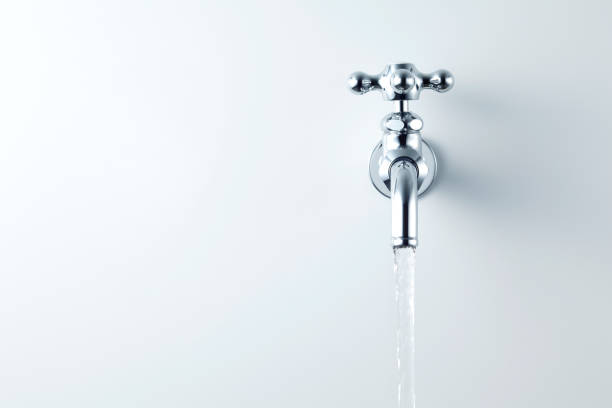Is Tap Water Making My Skin and Hair Worse?
Have you noticed that a bunch of celebrities are now washing their face and hair with bottled water? Some people in France don’t even use tap water at all! Everyone seems to be worried about how tap water might be hurting their skin and hair. But don’t worry—I’m here to share the truth.
What Harm Could My Tap Water Do?
To answer this question, I turned to the experts. Here is what they had to say.
Board-certified dermatologist, Dendy Engelman, MD, states that in some cities, tap water is composed of minerals, oxidizers, calcium, magnesium, silica, and iron which can strip natural oils from the skin and hair, leading to dryness and irritation. Hard water, which contains calcium or magnesium levels above 7 GPG, is more likely to cause issues. Not all tap water is the same, and it can even be different from one city to the next. You can find out how hard your water is by testing it with special strips or a kit. You could also ask your local water company or check out databases created by companies that sell water filters.
How Does Tap Water Affect My Skin?
According to Board-certified dermatologist Dr. Sheila Farhang, MD, hard water can be a problem for skin. The minerals in the water can leave a film on your skin that messes with the skin’s natural protection and oil production. The most regularly seen skin issue this creates is xerosis, or dryness. Dr. Farhang, who is based in Arizona, which has a high concentration of hard water, as well as a dry climate, has seen her own skin suffer because of it. Additionally, it can make skin conditions like acne, psoriasis, and eczema worse.
What About Hair?
Dr. Engelman explains that the minerals in hard water can also damage hair. It can make your hair dry, brittle, and more likely to break. If there’s copper in your water, it could change the color of color-treated hair over time. Imagine going to the salon, paying for a new hair color, and then having it fade because of your water! There might also be stuff like chlorine in tap water, and if there’s too much, it could change your hair color. So, if your scalp or hair is dry, or if your hair is color-treated, you should test your water for chlorine and metals.
What Can I Do?
If your home’s water is hard, or has chlorine or metals, you might want to buy a filtration system for washing your skin and hair. When you’re choosing a filter, make sure it can treat the specific problems your water has. For example, some shower filters can remove chlorine and metals but not hard water. On the other hand, some water-softening systems can treat hard water but not chlorine or metals.
Will Drinking it Do Any Damage to My Skin or Hair?
Lots of people worry about this. Some think that the chlorine and other chemicals in tap water might harm them. But, scientists have found that the amount of these things in water is too small to cause major problems. In fact, many skin doctors say that tap water can be good for your skin and hair because it helps keep the natural balance of oils and moisture. Of course, it’s always up to you what kind of water you use, but remember to think about the possible benefits of tap water.
In the end, the best thing to do is test your water. Once you know what’s in it, you can decide what to do next. Your skin and hair will thank you!




